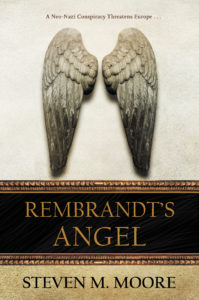The writing process…
My first experience with a computer was with a CDC 3600 (the now defunct Control Data Corporation), a powerful machine in its time but not much good for word processing—typing a story onto punch cards? No way! I was working odd hours during the semester and full-time in the summer at an R&D outfit located not far from the UCSB campus. Until that time and even a bit beyond, I took notes and wrote short stories and bits and snippets on almost any media, from unfinished lab notebooks to paper napkins.
How we write, i.e. the physical process, makes no difference for the final product, the story we tell. Some writers might still write their stories out longhand with pen and paper. I always liked pen better than pencil because I hate eraser crumbs, and I can see what I scratch out and maybe use it later. If you still write in that fashion, more power to you. I still do it occasionally.
Authors write their stories in a multitude of ways. As a reader, I don’t much care about how they do it. That doesn’t affect my enjoyment of their stories. As an author, I have my preferences, and they often change.
I’m also a fan of efficiency. I have authored a few books. I couldn’t have written them without some efficiency in my writing process. The typewriter always helped a bit. Two of my writing skills are speed reading and touch typing. The first allows me to quickly scan what I’ve written, much as a reader would when deciding to buy a book; the second allows me to write it in a speedy fashion. Some authors still use their old typewriters. (I remember a Tom Hanks documentary about them—the typewriters, not the authors who used them.)
Word processing software on a personal computer is the most efficient. It was a bit primitive on my first computer, the Radio Shack Color Computer, but software advances in pace with hardware. I never used Word Perfect—it seemed unwieldy—and MS Word always tries to be too many things (I rarely use all of its features). But word processing packages always provide tools that make my writing efficient, content editing as I go.
And word processing software facilitates the editing process. MS Word’s “Track Changes” is a bit flaky at times (one has to tame that left review pane before it crashes MS Word), but it’s an essential tool for editing in the end game. Before I even get there (or an editor does), I use the search feature to find and eliminate all my bad quirks. I do this even before sending an MS to beta-readers or first editors.
I’ve never found authoring packages like Scrivener attractive. I’m a pantser, writing by the “seat of my pants” and rarely using an outline. Those authoring pages almost always require some kind of an outline, and that puts a straitjacket on my storytelling abilities. Other writers might have found otherwise.
The title of this article is key. Writing is a process. The more authors can make it a process, preferably an efficient one, the more they can focus on what’s important, telling a good story. Process does not destroy creativity; it makes it more efficient. The process isn’t the story, but it’s what gets the story out to our readers.
That said, I wrote this article on a note pad with a pen. I often do that as I watch network news or CNN. When the news slows down or goes to commercials (a hurrah for PBS News Hour!), I create blog posts. All just part of writing!
***
Comments are always welcome.
Rembrandt’s Angel. How far would you go to recover a Rembrandt stolen by the Nazis in World War II? Inspector Esther Brookstone, of the Art and Antiques Division of Scotland Yard, will provide one answer to that question. Paramour and Interpol Agent Bastiann van Coevorden tries to keep her safe in her quest to recover the painting, but the duo uncover something much more sinister—a vast conspiracy that threatens Europe. Available in ebook format on Amazon and Smashwords and all the latter’s affiliated retailers (iBooks, B&N, Kobo, etc) and in print on Amazon and in your favorite local bookstore (if they don’t have it, ask them for it). This novel was published by Penmore Press. (A sequel titled Son of Thunder is about to be published.) Visit their website to see a treasure trove of great reads. Support small presses and their authors.

Around the world and to the stars! In libris libertas!
